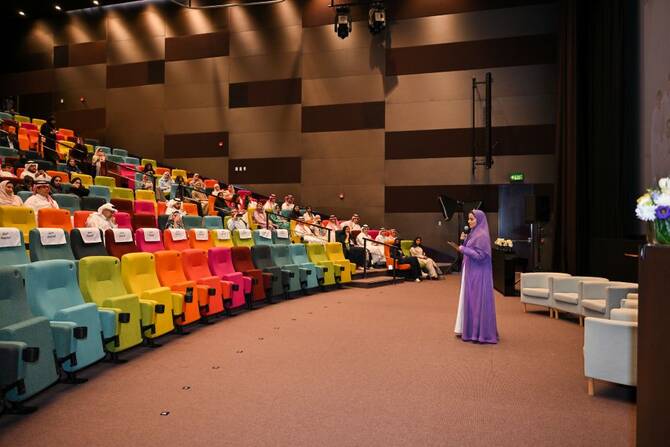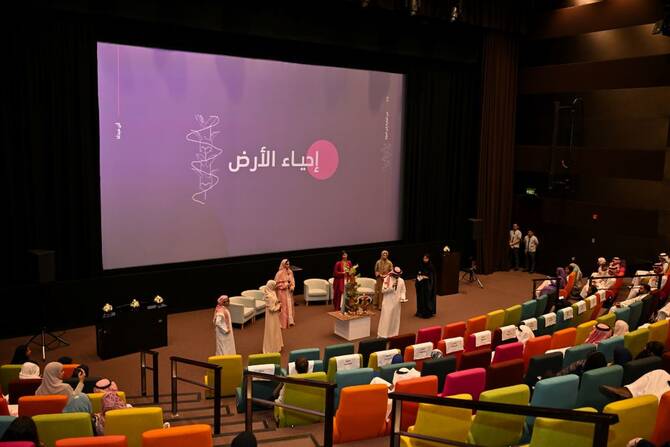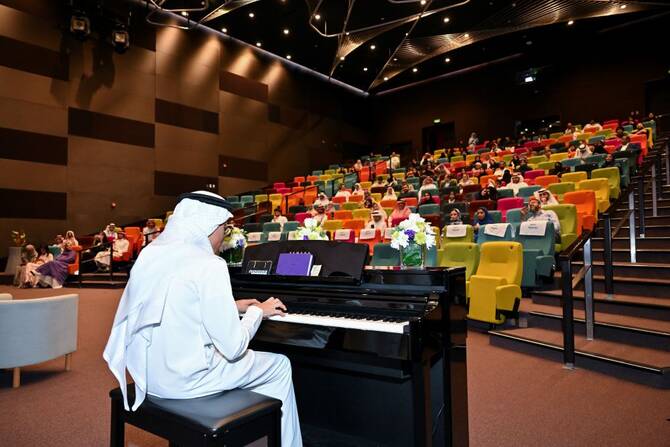Saudi Arabia cinema education is gaining momentum as the Kingdom pushes forward with its ambitious plans to nurture local talent and strengthen its film industry. Through dedicated cinema-focused education programs, young Saudis are being given the chance to learn filmmaking, screenwriting, directing, and other vital skills that can shape the nation’s cultural future.
With Vision 2030 emphasizing diversification of the economy and the growth of the creative sector, cinema has become more than just entertainment. It is now seen as a powerful tool for storytelling, cultural exchange, and national identity. These new education programs are designed to unlock creativity, equip young people with technical skills, and create opportunities for careers in film.
The Rise of Cinema in Saudi Arabia
For decades, public cinemas were absent in Saudi Arabia, but since their reintroduction in 2018, the industry has grown rapidly. The lifting of the ban on cinemas not only changed the entertainment landscape but also sparked interest among the younger generation in filmmaking.
Saudi Arabia’s box office has become one of the fastest-growing in the world. International films, regional productions, and homegrown Saudi movies are attracting large audiences. However, the country understands that to sustain this growth, it must invest in education and training to create a skilled workforce.
This is where cinema-focused education programs come in, bridging the gap between passion and professionalism.
Why Cinema Education Matters
Cinema is more than just visuals on screen. It requires strong storytelling, technical expertise, and cultural depth. By promoting cinema education, Saudi Arabia ensures that its film industry does not rely solely on imported talent but instead builds a foundation of local expertise.
Key reasons why cinema education is vital include:
- Skill Development: Students learn camera work, editing, directing, and production management.
- Cultural Representation: Films can showcase Saudi traditions, modern lifestyles, and social progress to the world.
- Economic Opportunities: A thriving film industry generates jobs in acting, production, marketing, and distribution.
- Global Presence: High-quality films can compete internationally, boosting Saudi Arabia’s image abroad.
New Cinema-Focused Education Programs
Saudi Arabia has partnered with international film schools, universities, and cultural organizations to launch specialized programs. These include:
1. Film Institutes and Training Centers
The Saudi Film Commission has been instrumental in setting up film institutes that offer short and long-term courses. These programs teach students everything from screenwriting to sound engineering.
2. University Programs

Several universities in Saudi Arabia have introduced cinema and media studies as official degree programs. Students can now pursue bachelor’s and master’s degrees in filmmaking without leaving the Kingdom.
3. International Partnerships
Saudi students are also being sponsored to study at world-renowned film schools abroad. Collaborations with Hollywood, Bollywood, and European institutions bring global expertise to Saudi talent.
4. Workshops and Masterclasses
Industry professionals are regularly invited to conduct workshops and masterclasses. These provide hands-on experience and allow young filmmakers to learn directly from experts.
5. Scholarships and Grants
To encourage more participation, scholarships and financial aid are being offered to students interested in pursuing cinema studies. This ensures that financial barriers do not limit creative potential.
Empowering the Next Generation of Storytellers
Cinema education is not just about technical training. It is also about empowering young Saudis to tell their own stories.
Through these programs, students are encouraged to explore themes that matter to their communities—family, culture, history, and modern challenges. By doing so, Saudi Arabia is shaping a generation of storytellers who can capture the essence of the Kingdom’s transformation.
One inspiring example is the rise of Saudi filmmakers whose movies have made it to international film festivals. Many of them attribute their success to early access to workshops and training opportunities supported by the government.
Vision 2030 and the Creative Economy
Saudi Arabia’s Vision 2030 aims to diversify the economy by reducing dependence on oil and increasing investments in tourism, culture, and entertainment. Cinema fits perfectly into this strategy.
The government’s focus on cinema education directly contributes to Vision 2030 by:
- Creating Jobs: From directors to costume designers, the film industry offers thousands of career paths.
- Boosting Tourism: International film festivals held in Saudi Arabia attract global visitors.
- Enhancing Cultural Identity: Films produced by Saudis showcase authentic narratives to the world.
- Promoting Innovation: The use of new technologies like virtual reality and advanced cinematography is being explored.
Saudi Arabia’s Global Film Ambitions
By promoting cinema-focused education, Saudi Arabia is positioning itself as a hub for filmmaking in the Middle East. Major film festivals, such as the Red Sea International Film Festival, have already gained international recognition and provided a platform for young Saudi filmmakers.

The long-term goal is not just to train filmmakers but to create a sustainable film ecosystem that includes production houses, studios, distribution networks, and global collaborations.
Challenges and Opportunities
While the growth of cinema education is promising, challenges remain.
- Infrastructure: More studios, editing suites, and specialized labs are needed to support advanced training.
- Faculty Expertise: Recruiting experienced film educators can be difficult in a growing industry.
- Balancing Tradition and Modernity: Films must respect cultural values while pushing creative boundaries.
Despite these challenges, the opportunities are vast. With a young population eager to explore new creative outlets, Saudi Arabia has the potential to become a leading center for cinema in the region.
Inspiring Success Stories
Several Saudi filmmakers have already shown what is possible with proper training and education:
- Haifaa al-Mansour: Saudi Arabia’s first female filmmaker, whose films have gained global acclaim.
- Ayman Jamal: Known for producing animated films that have reached international audiences.
- Young Independent Filmmakers: Many students who started with short films in local workshops have gone on to win regional awards.
These stories inspire others to pursue careers in film, proving that cinema education truly makes a difference.
Looking Ahead: The Future of Cinema Education
The expansion of Saudi Arabia cinema education programs signals a bright future for the industry. As more universities introduce film studies and more partnerships are established with international experts, the level of training will continue to improve.
The government’s ongoing investment, combined with the passion of young Saudis, will ensure that the country’s film industry does not just grow but thrives. In the coming years, we can expect to see more Saudi films on global platforms like Netflix, Amazon Prime, and major film festivals.
Conclusion
Saudi Arabia cinema education is not just an initiative; it is a movement that aligns with the Kingdom’s vision for progress and cultural growth. By promoting cinema-focused education programs, Saudi Arabia is empowering its youth, strengthening its cultural identity, and building a creative economy that will have a lasting global impact.
Do Follow Gulf Magazine on Instagram
Also read: Smart Metering: 5 Powerful Ways Transforming Utilities Management in Kuwait



